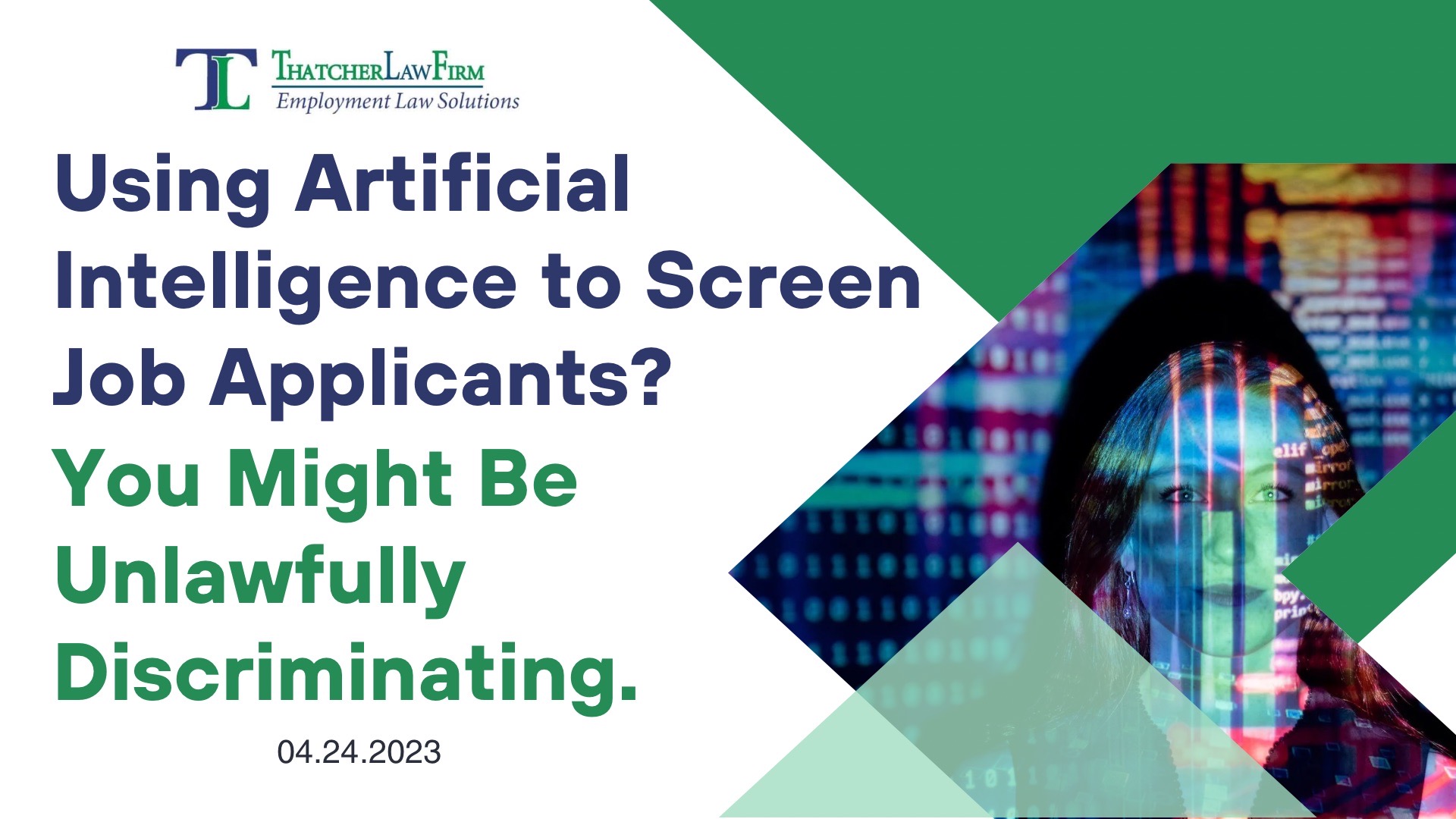Many employers have streamlined the hiring process by incorporating artificial intelligence (AI) or some form of automation. Without applying best practices, an employer’s reliance on AI can lead to discriminatory practices. There is convincing evidence that resume scanners, virtual assistants, and chatbots show prejudice against people in protected groups. This could be because the underlying data used to “train” AI and algorithms is itself affected by human bias.
If AI utilizes a data set of job candidates who have been successfully hired by a company in the past, the tool might simply recommend similar candidates. Because members of groups that routinely face discrimination are less likely to have been successful candidates in the past due to discriminatory bias, fewer of them would be chosen by this process. The AI software would merely mimic historic bias against members of protected classes.
The EEOC is considering this issue.
The Equal Employment Opportunity Commission (EEOC) has recognized a similar concern as it relates to disability discrimination. The EEOC recently held a hearing to examine how technology is being used in hiring and recruitment and considers this “a new civil rights frontier.”
Last year, the EEOC issued extensive guidance to employers on how the use of software, algorithms, and AI in hiring could discriminate against candidates with disabilities. Whether or not a particular program was tainted with biased data, the mere fact that a company uses automation in its hiring process could be fundamentally discriminatory against people with disabilities.
According to the EEOC, these are the three most common ways automated hiring practices could violate the Americans with Disabilities Act (ADA):
- The automated tool may not have a clear way for applicants to ask for a disability accommodation. Reasonable accommodations are required by the ADA.
- The automated tool could ask job applicants questions about their disability that are prohibited by the ADA.
- The tool may screen out applicants with disabilities who could perform the essential job functions with a reasonable accommodation.
Can employers be held responsible for this type of discrimination?
The EEOC warns that employers can be legally responsible for this type of disability discrimination in violation of the ADA. For example, employers have been held liable for administering discriminatory pre-employment tests, even when those tests were developed by third parties. If a computer tool is making consequential decisions on your company’s behalf, you can be held responsible for those decisions. It is always wise to seek legal counsel when implementing new technology in the hiring processes. If you have questions about legal compliance in hiring, contact Thatcher Law Firm at
301-850-1246 . www.ThatcherLaw.com. Follow us on:

